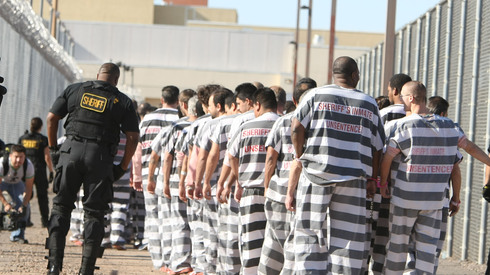When you die

In this day and age we experience life in a world full of uncertainty. There are many things that are not guaranteed. The one absolute I have come to terms with is that we will all experience a physical death at some point in our life. So the question is: what happens immediately after death? This article was inspired by a discussion between myself and a sibling about what actually happens when we die. He was recently speaking with an individual of the Jehovah witness faith. He asked if I believed that we go in to an unconscious state until Judgement Day. I turned to the Holy Spirit and my bible to get a definitive answer to share with him.
What Happens Immediately After Death?
The Bible is primarily a book about life. It tells us how to experience everlasting life, and also how to enjoy an abundant life here on earth. John 3:16 talks about “life.” The writer says, “For God so loved the world that he gave his only begotten Son, that whosoever believes in him should not perish, but have everlasting life.” The Bible is not primarily a book about death, yet it treats the subject of death many times because death is part of the cycle of life in God’s plan.
We all experience aging and illness and frailties of some kind. And although we can be thankful for the wonders of modern medicine and for the skills of dedicated doctors, the fact still remains that death will come to all of us. And at death, the body will return to the dust of the earth, and the soul will be carried immediately either into the presence of Christ or, it will enter into a place called Hades (Hell).
Following death, there is an intermediate state between death and the final judgment. And there is also a final state which will last forever. In this article I will be focusing on the intermediate state after death of the physical body.
What Happens to those who die without being saved by Christ?
Jesus told about the self-centered ungodly rich man (in Luke 16). The ungodly man died, “and in hell he lifted up his eyes, being in torments” (Luke 16:23). The word translated “hell” is “Hades,” a word which in the New Testament is used to describe the place where the unsaved dead go immediately upon death.
The Greek word for “hell” as a final destiny, is a different word. The word “gehenna” was used to describe the Valley of Hinnom, the garbage dump on the south side of Jerusalem. It was the place where wild dogs gnashed their teeth as they fought over the garbage of the dump. Gehenna is the final place of punishment; Hades is the intermediate place of the dead.
Jesus (in Luke 16) says the souls of the wicked go to “Hades” after death, but in Matthew 10:28 Jesus speaks about hell also.
Don’t fear those who kill the body but are not able to kill the soul; rather, fear Him who is able to destroy both soul and body in hell. Matthew 10:28 (HCSB)
Hades is like a county jail (a temporary prison), until the sentence is determined. The Lake of Fire (gehenna) is like a state penitentiary, a permanent place of punishment.
While “Hades” is not the final destiny of the wicked, it is a place of conscious suffering and of despair place of torment. The man in Luke 16 wanted someone to dip the tip of his finger in water to cool his tongue (Luke 16:24).
The Lord knows how to rescue the godly from trials and to keep the unrighteous under punishment until the day of judgment. 2 Peter 2:9 (HSCB)
Hades is a temporary prison where the wicked dead are kept under punishment until the day of judgment and the final sentence is named.
The purpose of the Judgment is not so much to determine who is saved and who is lost. The matter of salvation has been determined by our decision regarding Jesus Christ here in this life. For example, John 6:47 says, “He who believes in me has everlasting life.” The word “believes” is a strong word: It means “to embrace,” and “to cling to;” it includes repentance and obedience. Those who sincerely receive Jesus Christ as Saviour and Lord of their lives, are assured of eternal life. By way of contrast, those who do not know God, and who do not obey the gospel of our Lord Jesus Christ “shall be punished with everlasting destruction from the presence of the Lord” (2 Thessalonians 1:8-9).
And so the final Judgment is not so much designed to determine who is saved and who is lost, as it is to determine the level of punishment and the level of reward. Every human being will some day stand before the judgment of God. There will be rewards and there will be appropriate punishment. Exactly when and how God will accomplish all this, is not really important for us to know. Revelation sheds further light on this subject.
Then the sea gave up its dead, and Death and Hades gave up their dead; all were judged according to their works. Death and Hades were thrown into the lake of fire.This is the second death, the lake of fire. And anyone not found written in the book of life was thrown into the lake of fire. Revelation 20: 13-14 (HCSB)
What about those who die in Christ?
The Bible teaches that those who are saved, having embraced the blood of Jesus on the cross (11 Peter 1:18-19), will at death go to be with Christ, in a state of conscious bliss and immediately in fellowship with Christ.
The Apostle Paul declared that “to be absent from the body” is to be “present with the Lord” (2 Corinthians 5:8). And later, he says that to die, is “to depart and be with Christ, which is far better’ (Philippians 1:23).
Jesus speaks of the immediate abode of the saved dead, as “Paradise.” He said to the thief on the cross, “Today you will be with me in Paradise” (Luke 23:43). The righteous dead are in the presence of Christ, in a place called Paradise, awaiting the resurrection of the body the judgment, the final reward and the future life in Heaven.
It might be helpful to explain that before the death and resurrection of Jesus, “Hades” had two regions, one for the righteous and the other for the unrighteous. Not only were the wicked in Hades, but so were the righteous in Old Testament times. In the account of the rich man and Lazarus (in Luke 16), before the death and resurrection of Jesus, there was a “great gulf” (Luke 16:26) between the two regions. But they were close enough to each other that the self-centered rich man could communicate with the patriarch Abraham.
In the later parts of the New Testament, the abode of the saved is described with the word “paradise.” The Apostle Paul was “caught up into Paradise” (2 Corinthians 12:4). Our Lord Jesus says that those who overcome shall “eat from the tree of life, which is in the midst of the Paradise of God” (Revelation 2:7).
The Scriptures indicate that Christ descended into Hades before He went back to the Father, at the time of His crucifixion and resurrection and ascension. (Acts 2:27) says that His soul was not left in Hades and that His body did not see corruption. (Acts 2:32-33) says that Jesus was raised up and exalted at the right hand of the Father.(Ephesians 4:8-10) says that when Christ “ascended on high, He led captivity captive.” It is the belief of many evangelical Bible teachers that it was at this time that those in the righteous portion of Hades were led into the place called Paradise in New Testament times. Jesus descended into Hades, set the Old Testament saints free, and took them to Paradise to be with Him. And now, when saved persons die, “to be absent from the body is to be present with the Lord” (2 Corinthians 5:8).
If the above Scriptures are properly interpreted, then immediately after death, the saved find themselves in Paradise and the lost find themselves in Hades. Exactly what activities will take place during the time between death and judgment is not revealed in Scripture. The Bible is restrained in what it says about life immediately following death. There are many questions about life after death that go beyond the limits of our understanding. Now we see through a glass darkly, but a marvelous day is coming when those mysteries will be completely unveiled.
We do know two major facts. Unbelievers will be in a state of anguish and torment (Luke 16:23-28; 2 Peter 2:9). The saved will be resting from their labors in joyful satisfaction (Revelation 14:13; Acts 7:59; Philippians 1:23; 2 Corinthians 5:8). The spirits of those who die in their sins will be ushered immediately in Hades, and after the Judgment, both body and soul will be delivered into the Lake of Fire. The spirits of those who die in Christ will be ushered immediately into the Paradise of God, and upon receiving new bodies, eventually will be transported into the final heavenly home, which Jesus says He is preparing for His people (John 14:1-3).
The final word,Dying: Keys to success
Christ achieved victory over death when He arose from the grave, and His followers have the promise of an afterlife in Paradise and eventually in the heavenly Home. However, death is still associated with sadness even for the Christian, because of the trauma of separation. But death is no longer oppressive for us because we have the assurance of entering Christ’s presence when we die. That is far better than life here on earth, (Philippians 1:23). Still, death remains a time of grief and sadness.
There are three observations about dying victoriously:
1) While as believers, we prepare for death, death is not the central focus of our lives.
The central focus for us is the resurrection. Philippians 3:9-10 expresses the truth that we aim to be found in Christ, and that our goal is to know “the power of his resurrection.” We look to the day when Jesus will appear and abolish death, and transform our lowly bodies to be like His glorious body (Philippians 3:21). We look at death in light of Christ’s great triumph; his return as King of kings,raising the dead and bringing life here on earth to an end.
2) While we are burdened for those we love and leave behind at death, we recognize that our dying will be great gain.
When we approach the borders of death, we are mindful of the fact that those we leave behind will grieve at our passing. Letting our friends behind is always painful. Hearing the news about a sudden death, or standing by the bedside of one who is dying, is always distressful. But when we arrive in the Paradise of God, the mysteries in our lives will become clear, and God will demonstrate the marvels of His grace that saved us. We are told in Ephesians 2:7 that “in the ages to come” Christ Jesus will “show the exceeding riches of His grace in His kindness toward us. Even the hard times which we face in this life are products of the kindness of God.
3) While we enjoy life here on earth, it is enjoyed only temporarily, because we are ready to depart from it.
People of the world are not ready to depart from this life. They try and crack funny jokes, and make small talk with each other. Those who are genuinely committed to serving Christ can truly enjoy life because death is not a constant dread. We think about it. It is an enemy. It brings sadness. We are not anxious for it. But deep down within we know that “to die is gain.” For the Christian, it means “to depart and to be with Christ which is far better.”
For the genuine disciple of Christ, death is faced with a sense of anticipation. We look at death-like a prisoner, awaiting release from prison; like a schoolchild, when the end of the term is near; like a migrant bird, ready to fly south; and like a person in the hospital, ready to go home.
Medical science can help people die relatively painlessly, but only the Christian message of hope through Christ can help us die victoriously. Let us make it a point to avoid foolish ways of living, and seek to live wisely, skillfully, and according to God’s framework. None of us knows how soon our lives will be snuffed out. The uncertainty of life and the certainty of death should cause us to make commitments to follow the Lord more carefully, and to bring the unsaved into a right relationship with God through faith in Jesus Christ.




